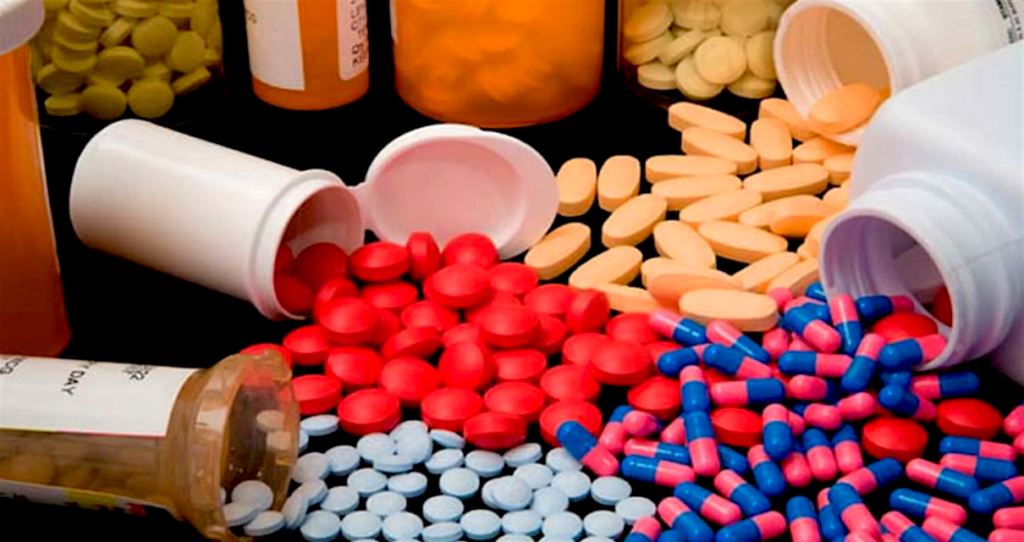Read the latest and greatest from our team
of incredible specialists.

Beach House Recovery Center » Blog » Effects of Prescription Drug Abuse on the Body & Mind
Prescription drug abuse is a growing epidemic with devastating and potentially deadly effects if left untreated. Prescription drug abuse involves anything from taking a medication in a different form, dose, or frequency than prescribed, taking a medication that was not written for you, and/or taking a prescribed medication for purposes other than the doctor intended.
Drug overdose deaths continue to plague the United States, and the number of those that involve the misuse of prescription drugs is on the rise.

Although there is no limit on the types of drugs that can be misused, the three most common prescription drugs abused are opioids and pain relievers, central nervous system depressants and sedatives, and stimulants, all of which can be characterized as psychotherapeutic drugs. In 2015, 18.9 million people aged 12 or older (7.1 percent) misused prescription psychotherapeutic drugs, according to the Substance Abuse and Mental Health Services Administration.
The most common causes of prescription drug abuse depend on the drug. For those who abused pain relievers, the majority reported doing so to help them relieve physical, chronic pain. The majority of those who abused depressants and sedatives did so to help them relax, relieve tension, and help with sleep. Commonly reported reasons for stimulant misuse included staying awake, being more alert, and help with studying.
Other general reasons individuals abuse prescription drugs include experimentation, to feel good or get high, to maintain an addiction and prevent withdrawal, and/or to be accepted by peers in social situations.
There are several factors that play a role in determining how drug abuse affects the body. These factors include the extent of the abuse (duration and amount), the individual’s mental, physical, and familial background if other drugs are involved, and the type of prescription drug abused. With that said, opioids, depressants/sedatives, and stimulants each have certain effects that are common among the majority of those who abuse them.
Common effects of opioid abuse to watch out for include slowed breathing, nausea, drowsiness, poor coordination, and confusion. An individual who injects these drugs risks infection at the injection site.
Overdose is another significant danger with opioids. Taking too much of an opioid can suppress breathing enough that the user suffocates.
Common effects of depressant and sedative abuse to watch out for include drowsiness, confusion, slurred speech, dizziness, problems with memory, slowed breathing, and unsteady walking.
Certain depressants like benzodiazepines (Xanax, for example) are often used in combination with alcohol or cocaine to offset effects or to increase the sedative effect. Doing so increases the risk of overdose, car accidents, and more.
Common effects of stimulant abuse to watch out for irregular heartbeat, agitation, reduced appetite, high blood pressure, increased alertness, anxiety, and paranoia.
Those abusing stimulant drugs to the point of addiction may stress their heart to the point of heart failure.
Each of the prescription drug types common among prescription drug abuse has one thing in common: they affect the chemical composition of our brain in some manner. The chemical-altering effects of these drugs play a significant role in addiction.
Early identification of prescription drug abuse and early intervention may prevent the problem from turning into an addiction. Once a dependency on a prescription drug and addiction develops, individuals will experience uncomfortable withdrawal symptoms that are best managed by a medical professional.
For those struggling with prescription drug addiction or those who know someone who may be, professional rehabilitation treatment is available. Some people will also require medical detoxification before rehabilitation. Rehab facilities like the Beach House Center for Recovery specialize in all aspects of the recovery process, including detoxification, managing withdrawal symptoms, personalized therapy solutions, and ongoing support. Professional recovery specialists can help you remove prescription drugs from your system and live a sober life.
Whether you’re researching for yourself or a loved one, Beach House can help. We understand that this is a serious time in your life and that the treatment center you choose matters. We want you to feel comfortable and empowered to make the right decision for yourself, a friend, or a family member. This is why a counselor is waiting and available to answer your questions and help put your mind at ease regarding the next steps. Many of the staff at Beach House have walked in your shoes. If you feel you’re ready or want more information about how to help a loved one, we can help today. You can also learn why we are voted the #1 rehab for addiction treatment in Florida.
We accept most major insurance plans and can verify your benefits quickly and confidentially.
We’re committed to helping you access the care you need, our admissions counselors can guide you through your coverage options and available resources.





"*" indicates required fields